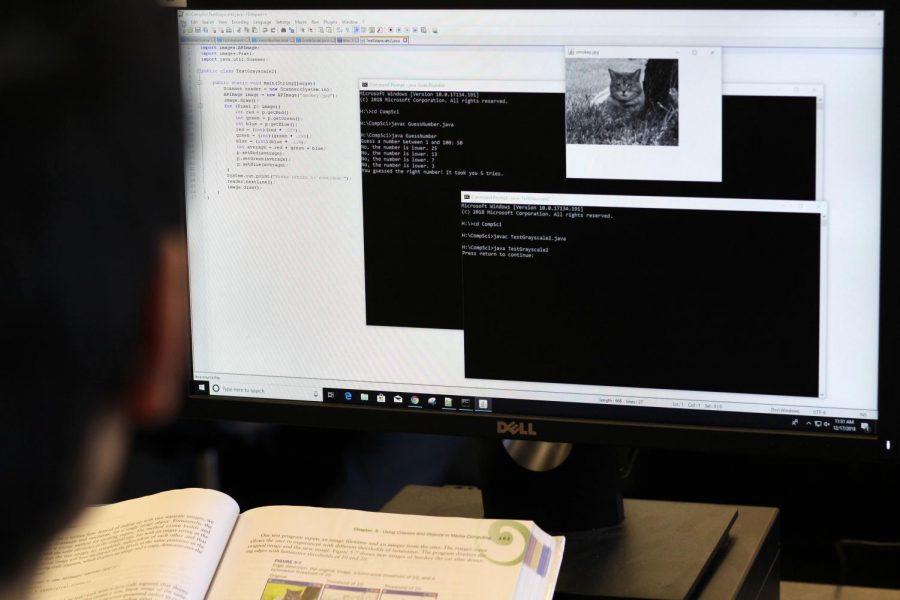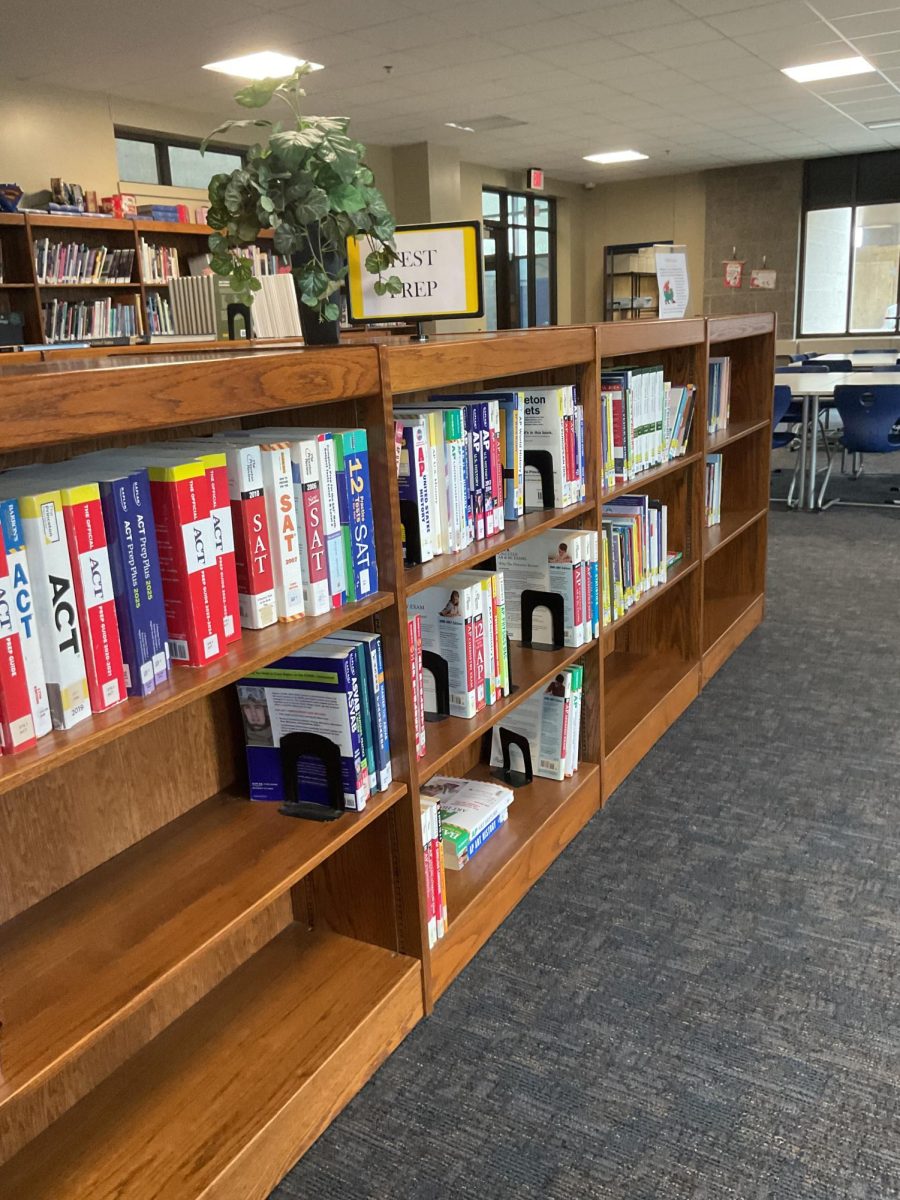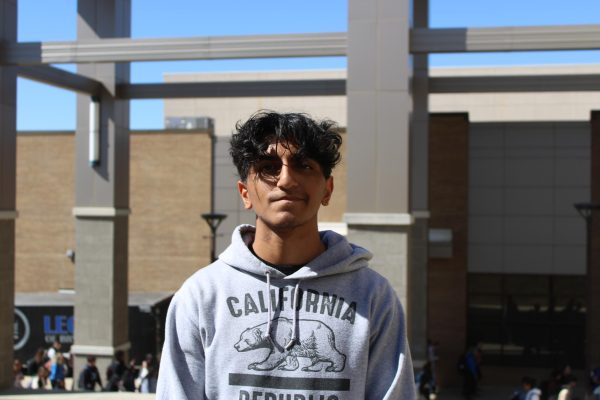Coding A Future
December 23, 2018
Who made this? How is this made? How does it run? These are questions that haunted our most successful scientists and intellectuals, but they’re also the same questions that computer programming students ask every day.
Programming 1 student Baker Bright found an interest in technology at a young age but just began taking programming classes.
“Whenever I was little and the Playstation 2 came out, I was constantly focused on technology and ‘How does this work?’” Baker said. “I’ve always been interested in ‘How are these things made?’ and ‘How do people come up with these ideas?’”
Bright enjoys creating games in Scratch, a game inventor app.
“Whenever I first started, I didn’t understand any of it, but now I’m able to figure out what to do,” Bright said.
Bright plans on taking AP Computer Science next year and beginning a career in graphic design and film editing.
“I want part of my future to be involved with computers, so this [will give me] a better understanding and [ability] to fix something,” Bright said.
Bryant alumna Brenda Qualls, who now teaches computer science classes, got into programming after taking a college course in 1985, which inspired her to change her major from English to Computer Information Systems.
“I took it and I just fell in love with it,” Qualls said. “I knew it was what I wanted to do.”
After college, Qualls worked in Little Rock as a programmer for 10 years, first at Arkansas Farmer’s Bureau and then later at Alltel.
“When my students go out and get a job in programming and come back and tell me about it, that’s what makes me proud,” Qualls said.
After Qualls realized that not many programming teachers had the experience of being a programmer like she had, she decided to start teaching. She has been teaching for 13 years, beginning at Benton High School.
According to Qualls, when you learn one coding language, it is very easy to learn another one.
“I think everybody should take coding,” Qualls said. “If you think about it, there’s almost nothing that isn’t impacted by programming.”
Qualls teaches all of the programming classes at Bryant, which consist of programming, AP Computer Science Principles (an entry-level general class which discusses the internet, data and emails) and AP Computer Science A, which is harder and focuses on coding.
“It is amazing,” Qualls said. “They come in knowing nothing. They don’t even realize that they’re learning it as they do it. So, the growth is exponential.”
Last year, Arkansas added an incentive program for students who pass the AP Computer Science A class, granting each student $250 for scoring a 3 on the AP exam, $750 for a 4 and $1000 for a 5.
“The majority [of my students] get into it,” Qualls said. “They like it, they see the logic in it. They just fall in love with it.”
The coding language and technology required for programming is changing constantly.
“The thing about technology is 10 years from now, we won’t even know what jobs will be there,” Qualls said. “20 years [ago], we didn’t even have mobile apps. So really, we’re trying to educate people for jobs that aren’t even there yet. I think it’s exciting.”
Programming is a male-dominated field. According to Data USA, only 22.5 percent of programmers are female. Senior Abbie Johnson is in Qualls’ AP Computer Science principles class.
“They’re trying to get more women into it, because I guess women feel intimidated by it, but it’s really growing in demand,” Johnson said.
Johnson has taken programming classes throughout high school. AP Computer Science Principles involves creating apps, and lessons walk students through the coding process.
“A lot of people don’t really know what [coding] is,” Johnson said. “It’s commands that you’re telling the computer to do. The computer doesn’t know what to do. Everything that your computer does, it does because of code.”
Johnson got introduced to coding on her own while she was in middle school.
“When I was playing games, I [wondered] ‘How are these made?’” Johnson said. “That kind of introduced me to code, which makes everything run.”
Programmers run several tests throughout their process before reaching the final test.
“Once I finish everything and I test it that final time and it works, [I] get so much enjoyment out of it, because what [I’ve] done makes it work,” Johnson said.
Southern Arkansas University offers a competitive programming environment and is pushing for more females in the technology field by offering a scholarship for only women. Johnson plans to apply for the scholarship.
“It’s something I enjoy doing,” Johnson said. “I’ve found that I’m really good at it, and it’s one thing that I have patience for. When I start doing it, and it works, it’s really enjoyable.”
Johnson plans to continue her education in programming with hopes of becoming a computer programmer.
“As we have more and more technology, we need more people who know the right code to make that technology run,” Johnson said. “We’ll need more advanced code for more advanced technologies.”




